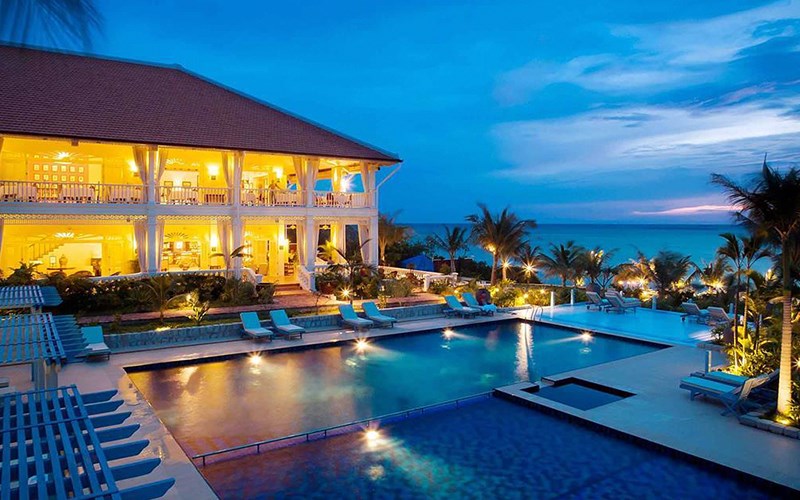Vietnam turns semiconductor vision into action
The global semiconductor industry is being reshaped by geopolitical tensions, shifting supply chains, and the surge of digital technologies.




Seaside tourism properties in Vietnam hold great potential, but investors should be cautious and look out for, according to Duong Thuy Dung, senior director of CBRE Vietnam.

Speaking at Vietnam Seaside Tourism Real Estate Forum 2018, held by TheLEADER on August 4th, Duong Thuy Dung, senior director of CBRE Vietnam, emphasises that compared with Thailand, a giant tourist hub in the region, seaside tourism real estate in Vietnam still has much room for development. Vietnam is estimated to attract the most significant amount of cross-border investment for the next 12 months among APEC economies.
According to statistics of CBRE Vietnam, tourism real estate products of Vietnam’s coastal provinces are improving in both quantity and quality, especially in Vietnam’s four famous destinations, namely Ha Long, Da Nang, Nha Trang, Phu Quoc. By 2020, the room stock of hotels, condotels and villas here is expected to sharply rise by half to over 34,000 rooms as in Nha Trang, or even double as in Phu Quoc and Da Nang.
The hotel segment has shown excellent performance with the occupancy rate all above 60 per cent for four-star and five-star hotels. Resort products, including condotels and villas, also experience a high absorption rate of above 90 per cent.

According to Dung, this bright scenario is attributed to numerous changes in the lives and habits of the Vietnamese. Thanks to better income, their living standards have also improved. It is estimated that by 2035, half of the Vietnamese population will be of the middle class, who are both potential investors and major customers for the tourism industry.
The draft plan to establish Special Administrative-Economic Units and the variety in real estate products also prove to be a big plus to regional and international investors. Besides, transport infrastructure is being rapidly completed, opening up chances for rising tourist attractions, such as Quy Nhon, Thanh Hoa, Quang Binh and Hai Phong.
However, Dung also warns investors about chronic problems of the market. The legality of condotels still lacks consensus, and investors have to cope with such investment risks as profit commitments. Environmental issues are also hard to ignore. Vietnam’s tourism industry heavily depends on natural landscapes and elements, so environmental degradation like the horrifying garbage mountains in Phu Quoc or coastal erosion in Da Nang may shed a grim future on these famous destinations.
The global semiconductor industry is being reshaped by geopolitical tensions, shifting supply chains, and the surge of digital technologies.
The change in APA approval authority is expected to shorten processing time and enhance business proactiveness in international tax negotiations.
As hybrid cloud systems grow more complex, Vietnamese enterprises are struggling to detect cybersecurity threats moving laterally within their own networks.
The submission of the draft resolution on Vietnam’s international financial center to the National Assembly heralds a new developmental era for the country.
More than just running a 5-star resort, Kristian Petersen is redefining the art of hospitality with a humane and sustainable leadership philosophy.
For Tyna Huynh, co-founder of Drinkizz, organic is not just a food choice but a way of life that fosters a deep connection between people, nature and community.